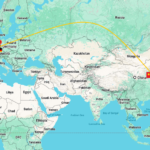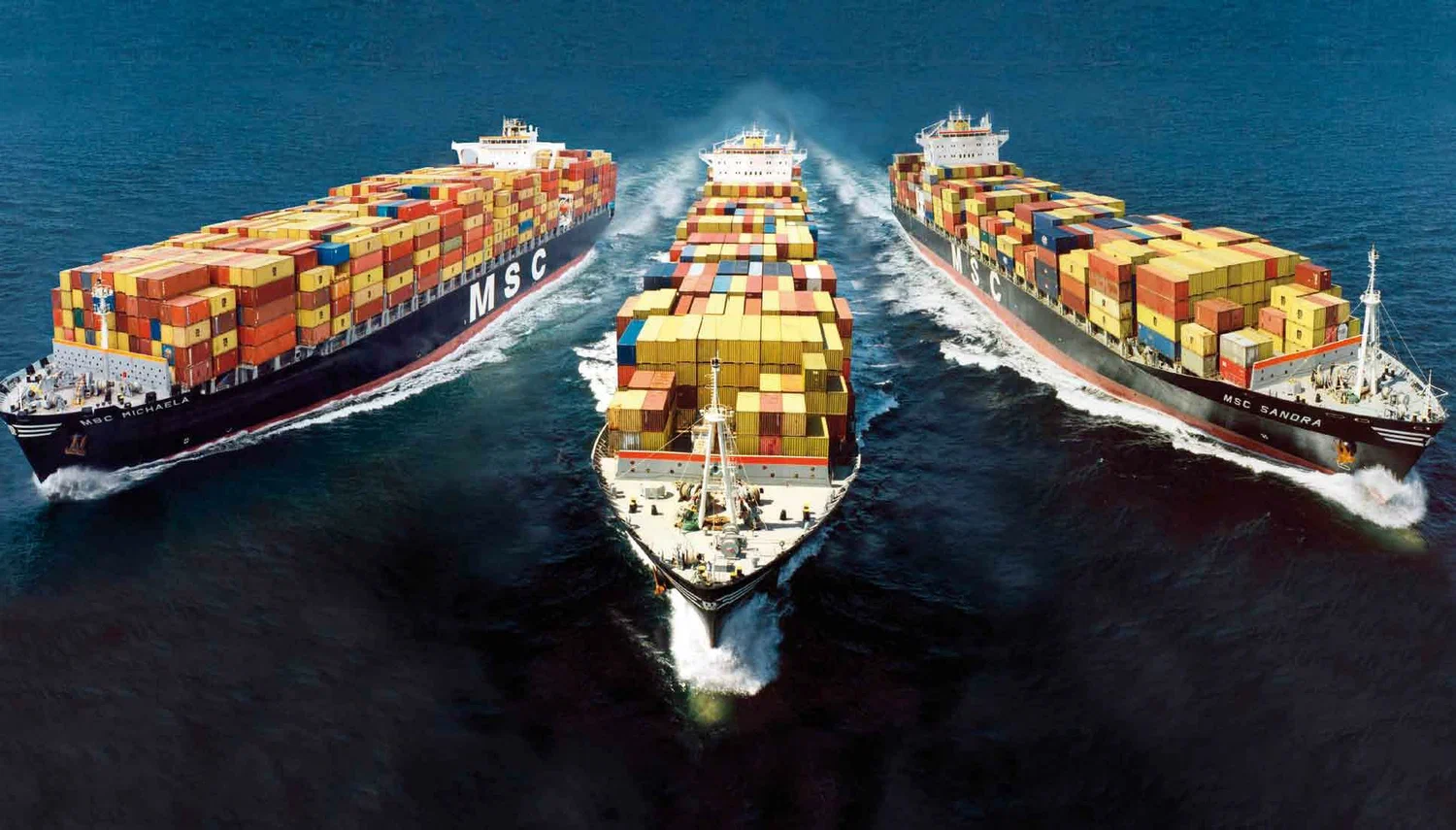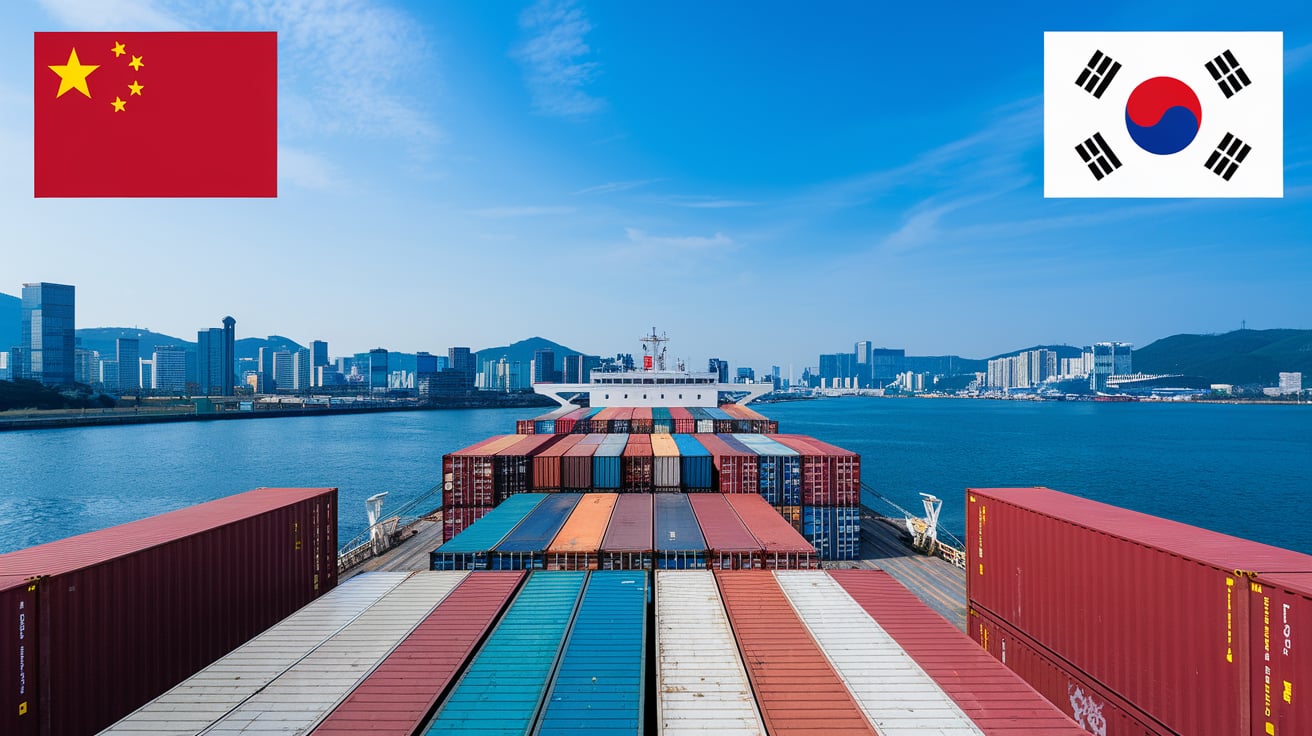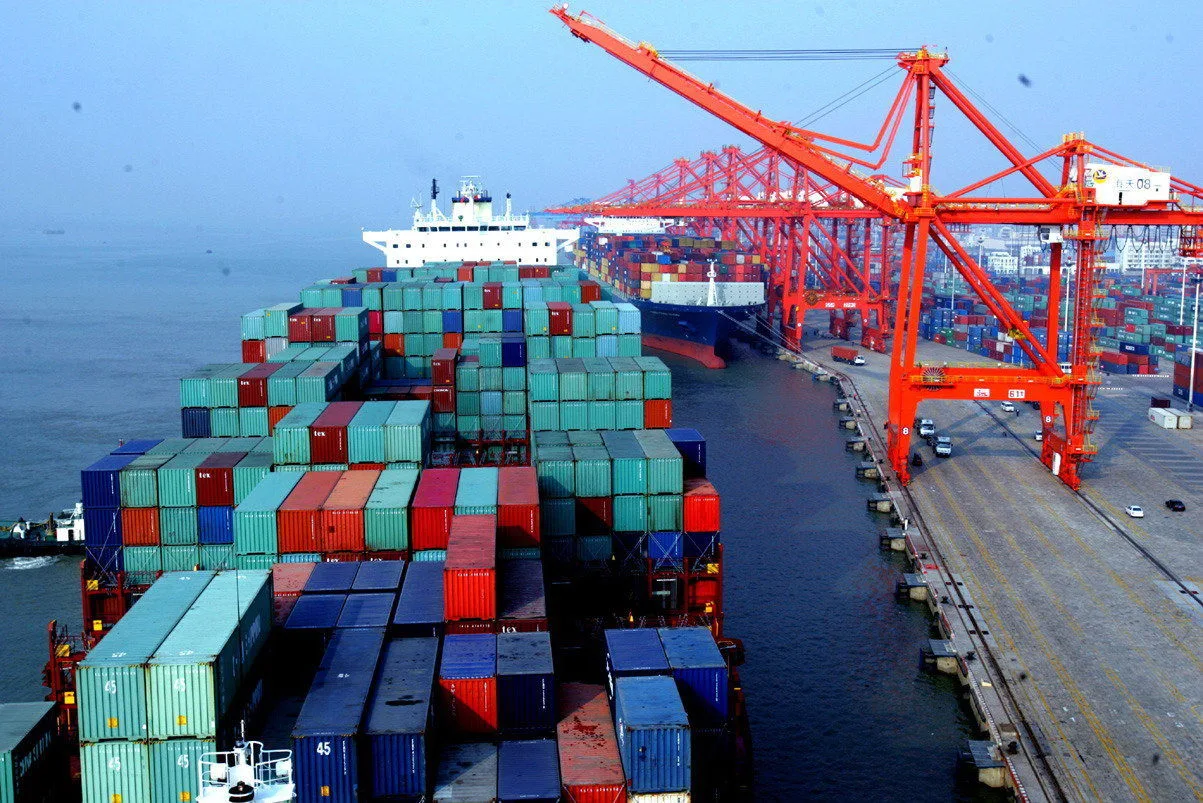In recent years, the trade relationship between China and Syria has flourished, making sea freight an essential avenue for businesses engaged in this growing economic partnership. This mode of transportation not only enables efficient and cost-effective movement of goods—ranging from electronics and textiles to machinery and agricultural products—but also serves to alleviate congestion at ports while promoting environmental sustainability. With options such as Less than Container Load (LCL) and Full Container Load (FCL), importers in Syria can tailor their shipping strategies to meet specific needs, ensuring a seamless flow of goods across borders. Understanding the intricacies of sea freight—from cost structures and transit times to port operations—is crucial for optimizing logistics and maximizing profitability in this competitive market.
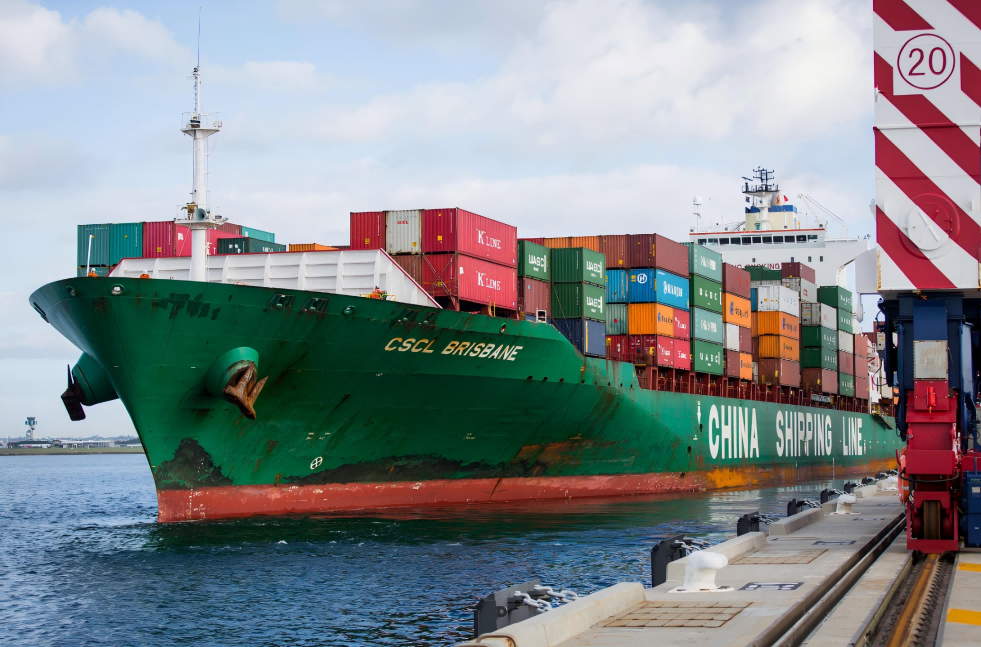
Introduction to Sea Freight from China to Syria
The trade relationship between China and Syria has expanded significantly in recent years, positioning sea freight as a vital component of this economic partnership. Sea freight enables businesses to transport large quantities of goods efficiently and affordably, making it essential for both exporters and importers involved in this international trade corridor.
Importance of Sea Freight in China-Syria Trade
The maritime trade route between China and Syria facilitates the movement of various goods, including electronics, textiles, machinery, and agricultural products. Given the geographical distance and the volume of goods typically shipped, sea freight emerges as the most cost-effective transportation method. Additionally, sea freight reduces congestion at ports and is more environmentally sustainable than air freight options.
Overview of Sea Freight Options and Benefits
There are two primary methods of sea freight available to importers in Syria: Less than Container Load (LCL) and Full Container Load (FCL). Each option has distinct advantages and is suited to different import needs.
Benefits of Sea Freight:
- Cost Efficiency: Lower shipping rates compared to air freight, especially for bulk shipments.
- Capacity: Ability to transport large quantities of goods simultaneously.
- Diverse Options: Flexibility in choosing between LCL and FCL based on shipment size and urgency.
- Reduced Packaging: Sea freight often allows for less packaging compared to other shipping methods, contributing to lower overall shipping costs.
Engaging a professional freight forwarder, such as Dantful International Logistics, can further streamline the process, ensuring both compliance with regulations and effective handling of logistics.
Understanding Sea Freight Options
Less than Container Load (LCL) Shipping
Definition and Advantages of LCL
Less than Container Load (LCL) shipping is a method where multiple shipments from different customers are combined into one container. This option is ideal for businesses that do not have enough cargo to fill an entire container. The advantages of LCL shipping include:
- Cost-Effectiveness: Clients only pay for the space occupied within the container, making it a budget-friendly option for smaller shipments.
- Flexibility: LCL shipping allows businesses to send goods without the need to wait until they have enough volume for an FCL shipment.
- Reduced Inventory Costs: Businesses can ship smaller quantities more frequently, minimizing the need to hold large inventories.
Ideal Use Cases for LCL
LCL shipping is particularly suited for:
- Small and Medium-Sized Enterprises (SMEs): Companies that may not have the demand for full container shipments can benefit from LCL.
- Mixed Cargo: Importers looking to combine different types of products within a single shipment often find LCL to be advantageous.
- Startups: New businesses testing the market may prefer LCL to gauge demand without committing to larger shipments.
Full Container Load (FCL) Shipping
Definition and Advantages of FCL
Full Container Load (FCL) shipping involves dedicating an entire container to a single shipment. This option is favorable for those who have enough cargo volume to justify the cost of a full container. The benefits of FCL include:
- Speed: FCL shipments often move faster than LCL since they do not require consolidation or de-consolidation processes.
- Security: A dedicated container minimizes the risk of damage or loss, as the cargo is not mixed with goods from other shippers.
- Cost-Effectiveness for Large Quantities: When shipping large volumes, FCL often becomes more cost-efficient than LCL on a per-unit basis.
Ideal Use Cases for FCL
FCL shipping is particularly beneficial for:
- Larger Corporations: Businesses with high-volume shipping needs can maximize efficiency and cost-savings with FCL.
- Consistent Demand: Companies that require regular shipments of goods can benefit from FCL to ensure a steady flow of inventory.
- Bulk Products: Industries dealing in bulk commodities, such as foodstuffs or raw materials, frequently rely on FCL to maintain supply chain stability.
Choosing the Right Option
Determining whether to use LCL or FCL shipping largely depends on factors such as shipment size, budget constraints, and urgency. Collaborating with a knowledgeable freight forwarder like Dantful International Logistics can help businesses navigate these considerations, ensuring optimal shipping strategies tailored to individual needs.
Comparative Summary Table
| Feature | Less than Container Load (LCL) | Full Container Load (FCL) |
|---|---|---|
| Cost | Lower cost per shipment | More cost-effective for large shipments |
| Speed | Slower due to consolidation | Faster transit times |
| Minimum Volume | No minimum, suitable for small shipments | Minimum required to fill an entire container |
| Risk of Damage | Higher due to mixed cargo | Lower with dedicated space |
| Flexibility | High, allows for smaller shipments | Limited to full container shipments |
For businesses looking to import goods from China to Syria, understanding these shipping options is crucial. Choosing the right method can significantly impact logistics efficiency and overall costs. Dantful International Logistics offers expert guidance and customized solutions to optimize your shipping experience, ensuring a seamless import process.
Shipping From China to Middle East Countries:
- Shipping from China to Saudi Arabia
- Shipping from China to UAE
- Shipping from china to KUWAIT
- Shipping From China To EGYPT
- Shipping from China to Bahrain
- Shipping From China To Jordan
- Shipping From China To Israel
- Shipping from China to Qatar
- Shipping From China To IRAQ
- Shipping from China to Iran
Comparing LCL and FCL Shipping Costs
When deciding between Less than Container Load (LCL) and Full Container Load (FCL) shipping, understanding the cost factors involved is crucial. The decision can significantly affect the overall logistics budget, making it essential for importers to evaluate both options carefully.
Cost Factors for LCL and FCL
- Volume and Weight:
- LCL shipments are charged based on the volume (measured in cubic meters) and the total weight of the goods. The higher of the two values will determine the shipping costs.
- FCL shipments have a fixed cost regardless of the weight and volume, as long as the shipment does not exceed container capacity.
- Handling Fees:
- LCL typically incurs additional handling fees due to the need for cargo consolidation and de-consolidation at the port.
- FCL shipments generally incur fewer handling fees since they involve transporting a dedicated container.
- Port Charges:
- Both LCL and FCL may incur port charges, but LCL shipments may have additional costs due to handling multiple shipments together.
- Insurance Costs:
- LCL shipments may have higher insurance costs due to the increased risk associated with mixed cargo.
- FCL shipments can often benefit from lower insurance rates since they involve a single shipment.
Average Rates for LCL and FCL from China to Syria
The following table illustrates the average shipping rates for LCL and FCL from China to Syria, providing a clear comparison for potential importers. Note that rates can fluctuate based on market conditions, fuel prices, and other economic factors.
| Shipping Method | Average Rate (USD per cubic meter for LCL) | Average Rate (USD per FCL) | Container Size |
|---|---|---|---|
| LCL | $60 – $120 | N/A | N/A |
| FCL | N/A | $1,500 – $3,000 | 20ft / 40ft |
Note: Rates are approximate and may vary by shipping line, season, and specific cargo requirements.
Typical Transit Times for Sea Freight
Understanding the typical transit times for LCL and FCL shipments is essential for effective supply chain management. Transit times can fluctuate based on multiple variables, making it important for importers to have realistic expectations.
Average Transit Times for LCL and FCL
The following table summarizes the average transit times for LCL and FCL shipments from China to Syria.
| Shipping Method | Average Transit Time (Days) |
|---|---|
| LCL | 25 – 35 |
| FCL | 20 – 30 |
Transit times are subject to change based on shipping routes, weather conditions, and port handling times.
Factors Affecting Transit Times
Several factors can influence the transit times of sea freight shipments:
-
Port Congestion: High traffic at ports can lead to delays in loading and unloading containers, affecting overall transit times.
-
Shipping Routes: The chosen shipping route can impact transit times. Direct routes may offer faster delivery, while indirect routes can lengthen transit periods.
-
Customs Clearance: The efficiency of customs procedures can affect how long it takes for goods to clear customs upon arrival in Syria. Delays in documentation or inspections can extend the time required.
-
Weather Conditions: Adverse weather can hinder shipping schedules, leading to delays in transit times.
-
Shipping Line Efficiency: Different shipping lines may have varying operational efficiencies and schedules, impacting the overall speed of delivery.
By understanding the cost structures and transit times involved in LCL and FCL shipping, businesses can make informed decisions that align with their logistical needs and budgetary constraints. For tailored shipping solutions, Dantful International Logistics offers professional assistance, ensuring optimal shipping strategies for importing goods from China to Syria.
Major Chinese Ports for Exports to Syria
When exporting goods from China to Syria, several key ports facilitate efficient sea freight operations. Each port offers unique advantages that can optimize shipping processes based on the nature of the cargo and logistical requirements.
Key Ports in China for Sea Freight to Syria
- Shanghai Port
- As one of the busiest and largest ports in the world, Shanghai Port handles a significant volume of international cargo, including exports to Syria.
- It serves as a major hub for various shipping lines, providing extensive connectivity to global markets.
- Shenzhen Port
- Located in southern China, Shenzhen Port is a vital gateway for exports, especially for electronics and consumer goods.
- Its proximity to manufacturing zones makes it a preferred choice for exporters looking for efficient logistics solutions.
- Ningbo-Zhoushan Port
- This port ranks among the top ports globally in terms of cargo throughput and offers a wide range of shipping services.
- Ningbo-Zhoushan is renowned for its advanced facilities and capabilities for handling diverse cargo types.
- Guangzhou Port
- With its strategic location near the South China Sea, Guangzhou Port is a significant player in the region’s shipping activities.
- The port is known for its efficient operations and quick turnaround times.
- Qingdao Port
- Known for its deep-water capabilities, Qingdao Port is essential for bulk cargo and large container shipments.
- The port’s extensive infrastructure supports efficient loading and unloading processes.
Advantages of Each Port
| Port Name | Advantages |
|---|---|
| Shanghai Port | High cargo volume, extensive global connectivity, and multiple shipping line options. |
| Shenzhen Port | Proximity to major manufacturing hubs, specializing in electronics, and flexible logistics solutions. |
| Ningbo-Zhoushan Port | Advanced facilities, high cargo handling capacity, and diverse shipping services. |
| Guangzhou Port | Strategic geographical location, efficient operations, and rapid turnaround for shipments. |
| Qingdao Port | Deep-water capabilities, suitable for bulk and large container shipments, and efficient cargo handling. |
Syria Ports for Receiving Sea Freight
Upon arrival in Syria, key ports serve as the primary entry points for imported goods. The infrastructure and handling capabilities of these ports play a crucial role in ensuring smooth operations and efficient logistics.
Main Ports in Syria for Receiving Goods
- Port of Latakia
- As Syria’s largest port, Latakia Port handles the majority of the country’s sea freight. It is equipped to manage containerized cargo, bulk shipments, and general cargo.
- The port’s strategic location along the Mediterranean Sea enables access to various international shipping routes.
- Port of Tartous
- Tartous Port is the second-largest port in Syria and specializes in bulk cargo and general cargo. It has seen investment in infrastructure improvements to enhance its handling capabilities.
- The port serves as an essential gateway for imports and exports, facilitating trade with various countries.
- Port of Baniyas
- Known mainly for handling oil and petroleum products, Baniyas Port also processes general cargo. Its infrastructure supports specialized handling for liquid bulk and containerized cargo.
- The port plays a vital role in Syria’s energy imports and exports.
Port Infrastructure and Handling Capabilities
| Port Name | Infrastructure and Handling Capabilities |
|---|---|
| Port of Latakia | Advanced container terminals, cargo handling equipment, and customs facilities, facilitating efficient processing of large volumes of goods. |
| Port of Tartous | Modernized cargo handling systems, capable of managing diverse cargo types including bulk and general cargo. |
| Port of Baniyas | Specialized infrastructure for oil and liquid bulk handling, along with general cargo processing capabilities. |
The choice of port in Syria can significantly influence the efficiency of logistics operations and the overall success of the import process. Leveraging appropriate freight forwarding services, such as those provided by Dantful International Logistics, ensures that businesses can navigate the complexities of shipping from China to Syria seamlessly, optimizing time and costs associated with port operations.
Preparing Your Shipment for Sea Freight
Ensuring that your shipment is properly prepared before it embarks on its journey is crucial for a smooth shipping process. This includes managing essential documentation and adhering to packaging and labeling requirements.
Essential Documentation
Proper documentation is vital for facilitating the smooth movement of goods across international borders. The following documents are typically required when preparing shipments for sea freight:
- Commercial Invoice:
- This document outlines the transaction between the buyer and seller, specifying the goods being shipped, their value, and payment terms. It serves as a legal document for customs clearance.
- Packing List:
- A detailed packing list includes information about the contents of each package, including the weight, dimensions, and description of the items. This document assists customs officers in inspecting shipments and verifies the cargo against the commercial invoice.
- Bill of Lading (B/L):
- The bill of lading serves as a contract between the shipper and the carrier, detailing the terms of the shipment and the responsibilities of each party. It acts as a receipt for the goods, confirming that they have been received by the carrier for transportation.
- Certificate of Origin:
- Some countries require a certificate of origin, which certifies where the goods were manufactured. This document may be needed for preferential tariff treatment.
- Insurance Certificate:
- If the shipment is insured, the insurance certificate provides proof of coverage in case of loss or damage during transit.
Packaging and Labeling
Proper packaging and labeling are essential for protecting your goods and ensuring compliance with customs regulations.
- Packaging Guidelines for Sea Freight:
- Use sturdy, water-resistant materials to protect against moisture and damage during transit.
- Ensure that all items are securely packed to prevent shifting during transport. Use cushioning materials to protect fragile items.
- Clearly mark any hazardous materials, following international regulations regarding their transportation.
- Proper Labeling for Customs Clearance:
- Labels should clearly display the destination address and contact information for both the sender and recipient.
- Use compliant shipping labels that include barcodes or tracking numbers to facilitate tracking and monitoring.
- Label each package with its contents and any handling instructions, such as “Fragile” or “Keep Dry.”
Navigating Customs Clearance
Customs clearance is a critical step in the international shipping process. Understanding the customs procedures in both China and Syria, as well as adhering to best practices, can significantly streamline the clearance process.
Understanding Customs Procedures in China and Syria
- In China:
- Before export, all necessary documentation must be prepared and submitted to customs authorities. This includes obtaining any export permits if required.
- Customs officials in China may conduct inspections to ensure that the goods being exported comply with relevant regulations and guidelines.
- In Syria:
- Upon arrival, imported goods must go through customs clearance. This involves submitting documentation, paying any applicable duties or taxes, and undergoing inspections by customs authorities.
- Familiarity with Syria’s import regulations will help businesses avoid delays or issues during the clearance process.
Tips for Smooth Customs Clearance
- Accuracy: Ensure that all forms and documents are completed accurately and reflect the shipment’s specifics to prevent delays.
- Timeliness: Submit all documentation promptly to avoid unnecessary hold-ups. Delays in documentation can result in fines or logistical issues.
- Compliance: Stay informed about any changes to customs regulations or tariffs to ensure compliance and avoid unexpected costs.
Choosing the Right Sea Freight Forwarder
Selecting a reliable freight forwarder is instrumental in ensuring the success of your shipping operations. The right partner can help navigate challenges and provide tailored logistics solutions.
Qualities of a Reliable Freight Forwarder
-
Experience: Look for a freight forwarder with a proven track record in handling shipments similar to yours. Experience in navigating the specific routes and customs regulations is essential.
-
Transparency: A reputable forwarder provides clear information regarding pricing, processes, and any potential challenges you may encounter during transit.
-
Comprehensive Services: Choose a forwarder that offers a range of services, including customs clearance, insurance, and warehousing, to streamline your logistics operations.
-
Excellent Communication: A reliable forwarder maintains open lines of communication, providing regular updates throughout the shipping process.
Questions to Ask When Selecting a Forwarder
When evaluating potential freight forwarders, consider asking the following questions:
- What specific experience do you have with shipments to Syria?
- Can you provide references or case studies from previous clients?
- What services do you offer beyond basic freight forwarding?
- How do you handle customs clearance and what support do you provide in that area?
- What is your approach to managing unexpected issues or delays?
Why Choose Dantful Logistics
Dantful International Logistics stands out as a top-tier choice for businesses looking to import goods from China to Syria. Here are several reasons to consider Dantful:
- Highly Professional Team: Dantful boasts a team of experienced logistics professionals who understand the intricacies of international shipping and customs procedures.
- Cost-Effective Solutions: With competitive pricing and tailored logistics solutions, Dantful helps clients maximize their shipping budget.
- One-Stop Service Provider: Dantful offers comprehensive services, including customs clearance, warehouse services, and door-to-door shipping, simplifying your logistics operations.
- Commitment to Customer Satisfaction: Dantful prioritizes client needs, ensuring that all shipments are handled efficiently and effectively.
Engaging Dantful International Logistics provides peace of mind, knowing your shipping needs are in capable hands. For a seamless and cost-effective shipping experience, consider partnering with Dantful for all your international logistics requirements.
Dantful International Logistics Services:
- Dantful Ocean Freight Services
- Air Freight From China
- Amazon FBA Freight Forwarding
- WAREHOUSE Services
- One-Stop Customs Clearance Solution
- Cargo Insurance Services in China
- DDP Shipping Services By Dantful Logistics
- Out of Gauge Cargo Transportation Shipping Services

Young Chiu is a seasoned logistics expert with over 15 years of experience in international freight forwarding and supply chain management. As CEO of Dantful International Logistics, Young is dedicated to providing valuable insights and practical advice to businesses navigating the complexities of global shipping.







